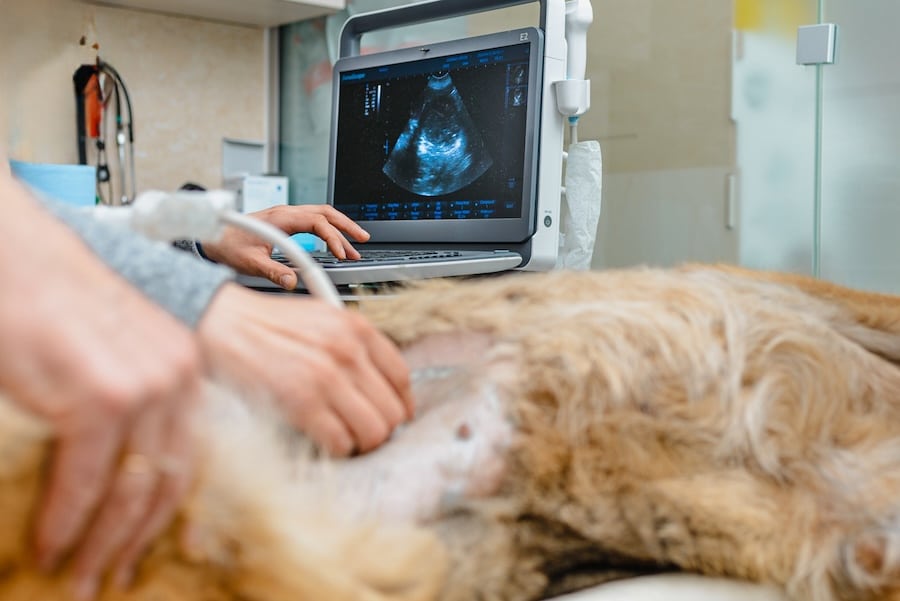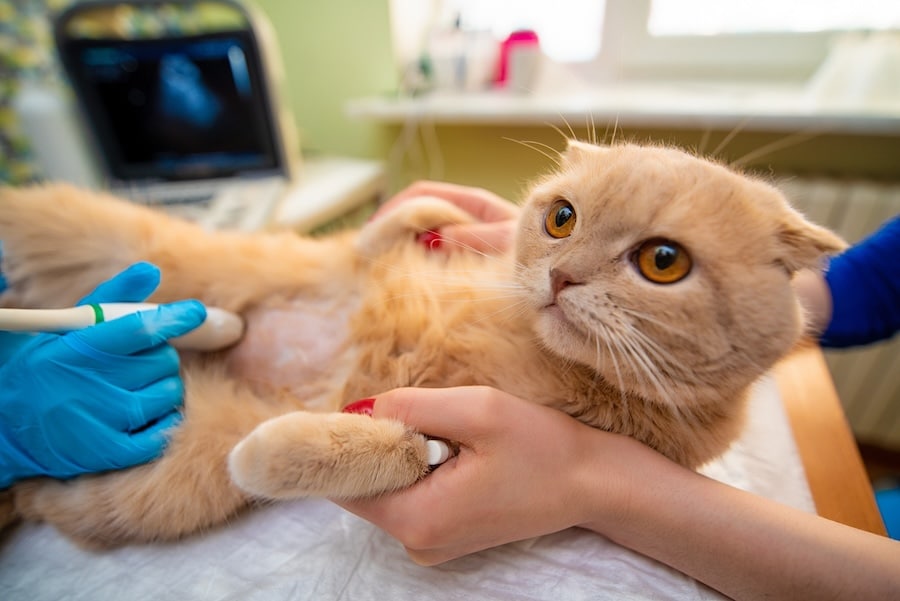Pet Ultrasound Services: Myrtle Beach
Pet Ultrasound Services Myrtle Beach
What is an Ultrasound?
A veterinary ultrasound is a non-invasive imaging technique used in veterinary medicine to examine a pet’s internal organs and detect health issues without the need for invasive surgery. It is a vital diagnostic tool that provides real-time insights into conditions affecting the abdominal organs, soft tissue, and even the spinal cord.
The process relies on ultrasound waves, which are high-frequency sound waves emitted from a small probe attached to an ultrasound machine. These waves travel through the pet’s body and bounce back when they encounter different tissues. The returning signals are converted into ultrasound images, allowing veterinarians to assess structures like the bladder, lymph nodes, and even the heart.
Since pet ultrasound services do not involve radiation or incisions, they are completely safe and painless. This non-invasive diagnostic tool is widely used for routine checkups, emergency evaluations, and accurate diagnosis of complex medical conditions. Whether performed by a primary care veterinarian, a veterinary specialist, or a veterinary radiologist, ultrasound ensures pets receive the best possible veterinary care with accurate results.
The Pet Ultrasound Examination Process
A pet ultrasound provides pet owners with essential information about their pet’s condition, offering a non-invasive imaging technique for early detection, which allows for more specialized treatment planning.
Step-by-Step Guide to a Pet Ultrasound Exam
Preparation & Comfort:
The primary care veterinarian will recommend an ultrasound examination if they suspect internal medicine concerns such as kidney disease, soft tissue damage, or abnormalities in the cardiac ultrasound assessment. To ensure accuracy, the pet may need to fast for several hours before the ultrasound exam, depending on the area being examined.
Using the Ultrasound Machine
During the procedure, a trained veterinary radiologist or veterinary specialist applies a safe, water-based gel to the pet’s skin to improve contact with the small probe of the ultrasound machine.
Outpatient Ultrasound & Sedation Considerations:
Most pet ultrasound services are conducted as an outpatient ultrasound, meaning pets can go home the same day. While the ultrasound services are painless, some pets may become anxious or restless. In such cases, mild sedation may be administered to keep them calm, ensuring accurate results.


Why Would My Pet Need an Ultrasound?
A pet ultrasound is a valuable diagnostic tool used in veterinary medicine to assess a variety of health issues. Some common issues include:
- Traumatic Injury: If a pet has suffered an accident or fall, an ultrasound exam can detect internal injuries, soft tissue damage, and bleeding that may not be visible externally.
- Cancer Detection: Veterinary ultrasound helps identify tumors in the abdominal organs, lymph nodes, and soft tissue, aiding in early detection and treatment planning. If necessary, an ultrasound-guided biopsy can be performed to obtain a tissue sample for further analysis.
- Urinary Tract Issues: Pets experiencing frequent urination, discomfort, or blood in their urine may need an ultrasound examination of the urinary bladder and kidneys. This can help diagnose kidney disease, bladder stones, or infections.
- Pregnancy Monitoring: An ultrasound is commonly used to confirm and monitor pregnancy in pets. The real-time images allow veterinarians to assess fetal development and detect potential complications.
- Heart Disease: A cardiac ultrasound, also known as an echocardiogram, evaluates heart function and detects structural abnormalities, helping veterinarians diagnose heart disease before it progresses.
- Abnormal Labwork or Chronic Illnesses: If a pet’s bloodwork shows concerning results, such as liver or kidney abnormalities, an ultrasound can provide a clearer picture of what’s happening inside the internal organs. This is particularly helpful for pets with chronic conditions requiring long-term veterinary care.
By utilizing pet ultrasound services, primary care veterinarians, veterinary radiologists, and internal medicine specialists can achieve an accurate diagnosis and determine the best treatment or care plan.
Schedule an Appointment
At Coastal Veterinary Care, we are committed to providing fast, accurate results with our advanced ultrasound technology, giving you peace of mind about your pet’s health. To schedule an appointment with Dr. Black for your cat or dog, contact us today!
Frequently Asked Questions
How should I prepare my pet for an ultrasound?
To prepare your pet for an ultrasound examination, follow your primary care veterinarian’s instructions, which may include fasting for several hours to improve ultrasound image clarity, especially for an abdominal ultrasound. The vet may also shave the area being examined to ensure proper contact, and in some cases, mild sedation may be needed to keep your pet calm for an accurate diagnosis.
Are there any risks associated with an ultrasound?
No, there are no risks associated with a pet ultrasound. It is a completely non-invasive diagnostic tool that uses ultrasound waves to create real-time images of the pet’s body without radiation, surgery, or discomfort. This painless procedure is purely for imaging and does not cause any harm to your pet.
